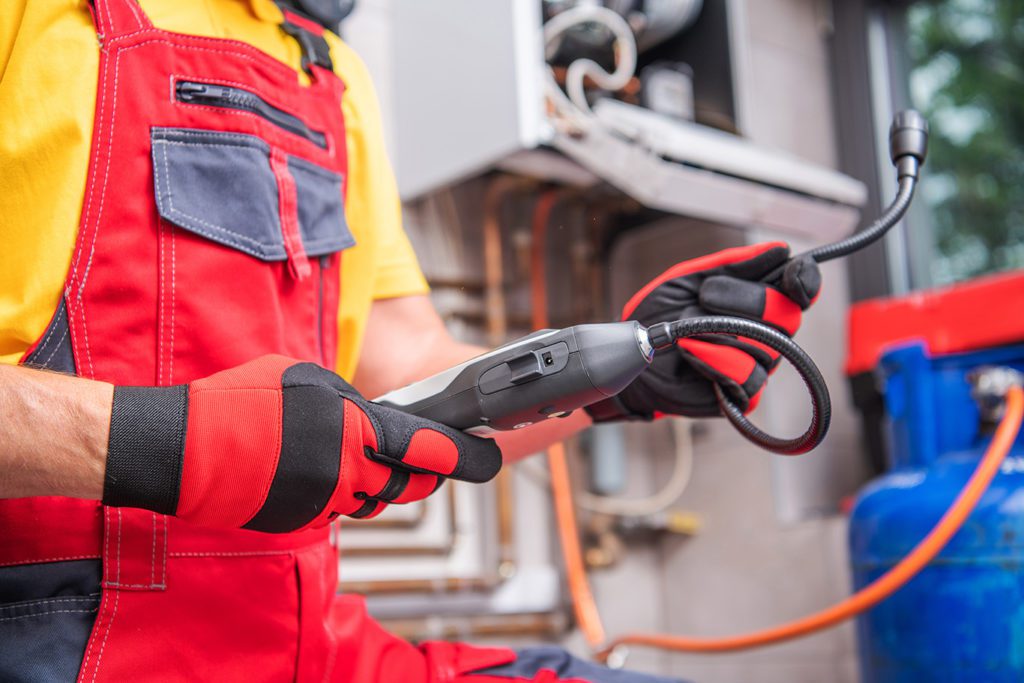As a homeowner, you may have heard of the dangers of a gas leak. While it is important to take immediate action if you suspect you may have one, it is also essential to know the basics about the types of gases used in homes, how to tell if there is a leak, and why you should always call a professional.
What Type of Gas Do Homes Use?
Most homes use either natural gas or propane for heating and cooking. Natural gas is composed primarily of methane and is produced from underground deposits. Propane is created by refining petroleum or natural gas and is stored as a liquid in tanks outside the home. The two types of gas are both colorless and odorless, so they are typically mixed with an odorant (usually mercaptan) that smells like rotten eggs to make them easier to detect if there’s a leak.
Is Using Gas Dangerous
In general, using natural gas or propane to heat and cook food in your home is safe as long as it’s installed properly and maintained regularly. However, these gases can become dangerous when they escape from their pipes due to small cracks or loose connections. Inhaling natural gas can cause dizziness, nausea, headaches and even death if left unchecked; while inhaling propane can cause respiratory issues over time. That’s why it’s important to know how to detect a potential gas leak in your home.
How Can I Tell If I Have a Gas Leak?
The most common sign that there may be a gas leak in your home is an unusual smell—like sulfur or rotten eggs. You should also be on the lookout for any bubbling sounds coming from appliances or pipes, dead vegetation around your home from contact with the gas, and higher than normal bills due to excess usage. In addition, watch for visible signs like rust on pipes or connections that are not usually rusted.
Should I Turn Off the Gas Myself?
No! Never turn off the gas yourself unless instructed by your utility company or local fire department. This can only be done safely by someone who has been trained in dealing with dangerous gases like methane and propane. If you think you have a gas leak in your home, immediately leave the area and call 911 or your local fire department right away—do not try to fix it yourself! It’s best practice to call a licensed plumber or technician who specializes in dealing with dangerous gases as soon as possible after identifying a potential leak.
Gas leaks can be extremely dangerous but thankfully they are relatively easy to identify through their distinct smell and sound. If you believe that there might be a gas leak present in your home do not hesitate to call 911 immediately followed by professionals from your utility company or local fire department who can assess the situation safely and accurately determine whether there truly is an issue at hand. Above all else, do not attempt any repairs on your own as this could further exacerbate an already potentially hazardous situation—so always trust an expert when it comes time for potential repairs! The average cost for fixing a gas leak will vary depending on factors such as its severity; however when taken care of correctly this can save lives as well as money down line from preventing future damages caused by undetected leaks!

